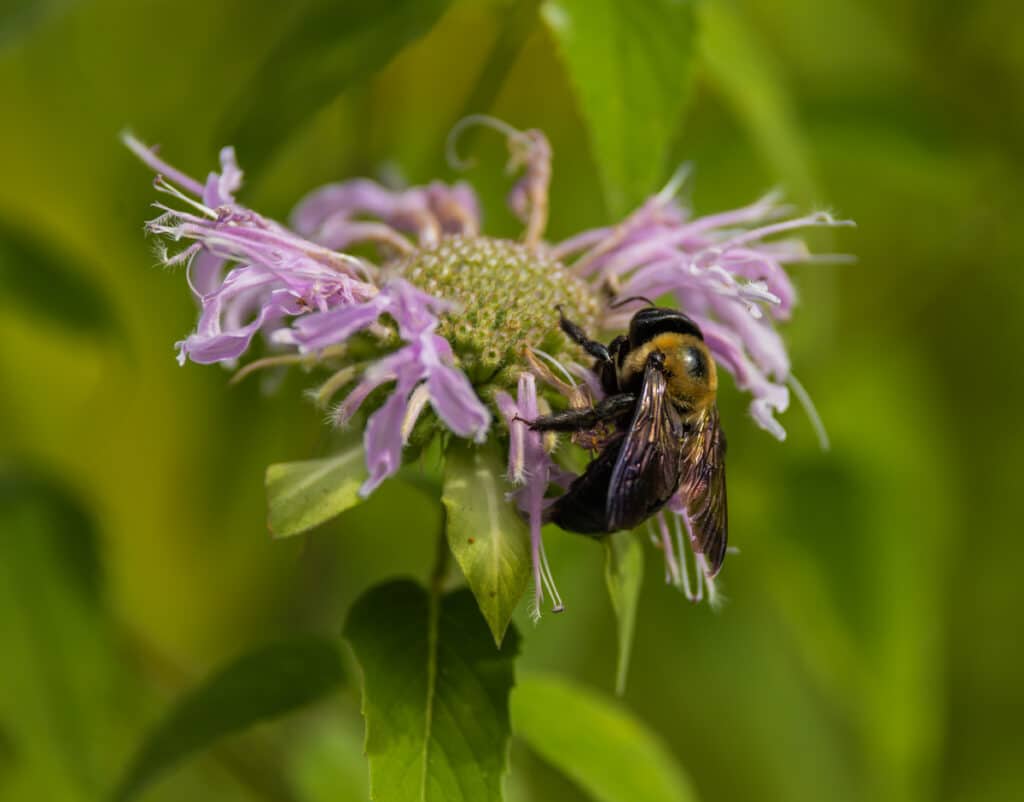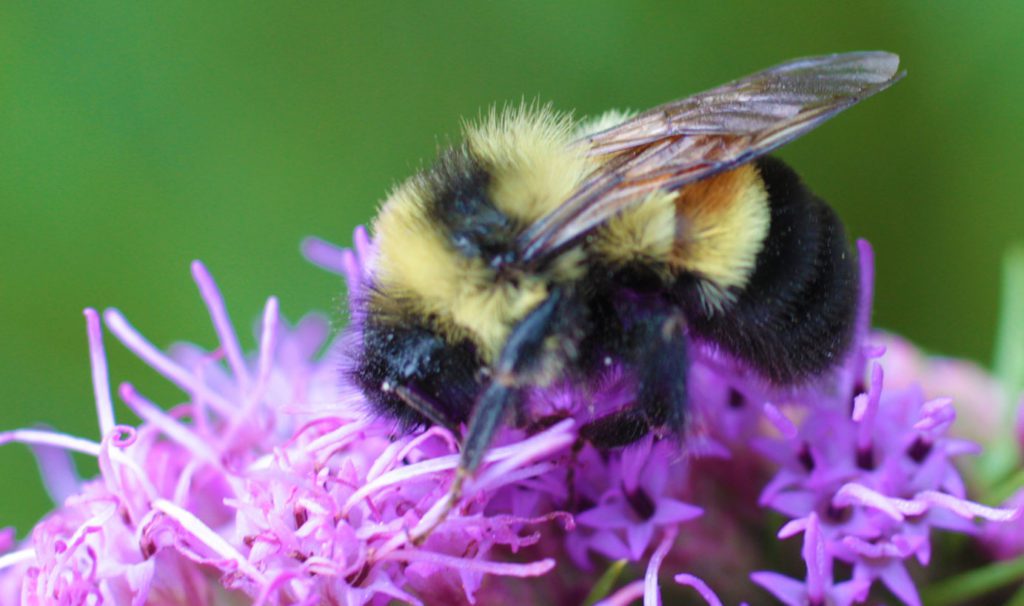
Virginia Pollinators to Look Out for this Summer
Pollinators play a crucial role in Virginia’s diverse ecosystems, contributing significantly to the state’s agriculture and natural landscapes. From bees and butterflies to birds and bats, these industrious creatures facilitate the reproduction of flowering plants by transferring pollen from one blossom to another. This essential process not only supports the growth of fruits, vegetables, and nuts but also maintains the health of wild plant communities, which in turn provide habitat and food for other wildlife. Understanding the importance of pollinators and taking steps to protect them is vital for ensuring the resilience of Virginia’s environment and economy.

Virginia is home to a remarkable variety of pollinators, including over 400 species of native bees, such as the carpenter bee, the rusty patched bumble bee and the lesser-known mason bee. These native bees are often more efficient pollinators than the non-native honeybee, as they are better adapted to the local flora. Butterflies, particularly the iconic monarch butterfly, also contribute to pollination while adding vibrant splashes of color to Virginia’s meadows and gardens. Additionally, birds like the ruby-throated hummingbird and bats such as the eastern red bat also play significant roles, especially in pollinating night-blooming plants and certain crops.

To support Virginia’s pollinators, there are several actions that residents and communities can take. Planting native flowers, shrubs, and trees provides essential nectar and pollen sources that sustain pollinator populations throughout the year. Reducing pesticide use and opting for organic gardening practices can prevent harmful chemicals from disrupting pollinator health. Creating pollinator-friendly habitats like wildflower meadows or installing bee hotels encourages nesting and foraging. The Virginia Department of Wildlife Resources says, “Humans aren’t the only ones relying on pollinators to generate the food we need, though. The health and continuity of natural ecosystems is also heavily dependent on pollination services. Pollinators are ecological keystone species, because they support the vast majority of terrestrial plants around the world that form the basis of innumerable food webs, which sustain the survival of all life, including our own.”
Our friends at Virginia Working Landscapes has amazing resources for managing land with native plants – they even have a page of resources just for pollinators here. We recently had a webinar with them:
Education and awareness campaigns can also help people understand the importance of pollinators and how their conservation benefits everyone. By fostering a pollinator-friendly environment, Virginians can help ensure the continued vitality of their natural world and the agricultural bounty it supports.